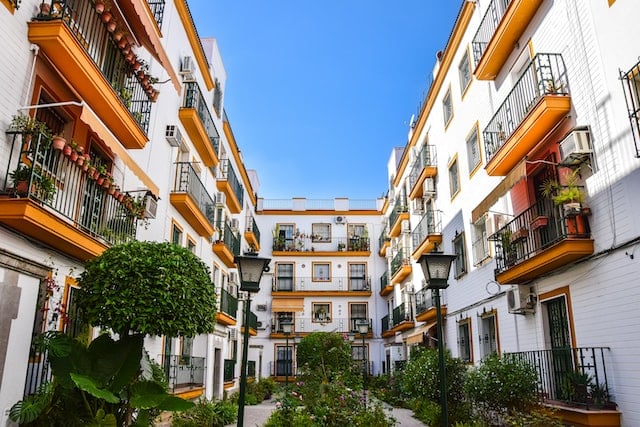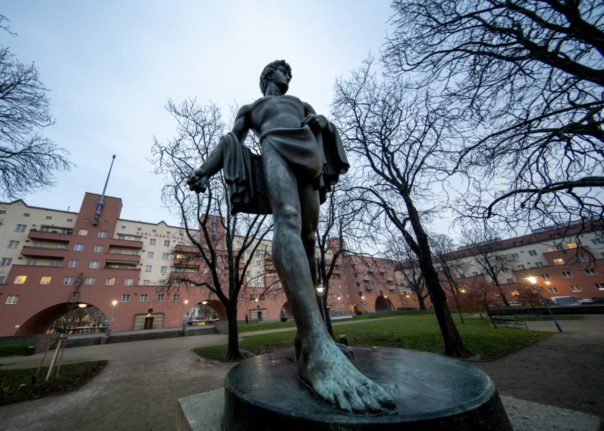So you’ve sorted out your visas, you’ve done all your packing and have either sold or moved out of your home, but when you arrive in Spain you’re not exactly sure where you’re going to stay.
Of course, it’s not the best idea to sign a contract ahead of time for a more permanent place before you’ve actually seen it in person. Photos don’t always accurately represent what the house or apartment looks like in reality and you won’t really be able to get a feel for the neighbourhood without being there.
On top of this, rental scams are rife in some places in Spain, particularly in the bigger more popular cities like Barcelona. Often people will place an ad (which usually looks too good to be true) and get you to wire over a deposit to secure it in advance, but here’s the catch – the place doesn’t usually exist.
This is why it’s important to never hand over money to secure a place to live in Spain before you’ve actually seen it in person and you can get the keys as soon as you sign the contract.
But, finding a place to live in a new country can be difficult and it can take time. So while you look for somewhere, you’re going to need temporary accommodation for a couple of months.
This can be tricky too because often temporary accommodation is geared towards tourists and you’ll be paying tourist prices too.
READ ALSO:
- How to rent a property without a job contract
- Stricter requirements and screening: Why it’s getting harder to rent in Spain
While Idealista and Fotocasa are two of the most popular sites to look for accommodation in Spain, when you only want somewhere for a couple of months, there’s no point looking there, as most places will have yearly contracts.
Keep in mind with short-term rentals for a couple of months, you’re going to be paying higher than the average monthly rent of someone on a permanent rental contract.
At least these temporary apartments are usually fully furnished, including kitchen utensils, wi-fi already connected and offer you the flexibility of shorter contracts.
Short-term rental agencies
Specialised short-term rental agencies are the best way to go, which will allow you to sign contacts for less than the typical one year. These types of agencies are usually found in Spain’s big cities that are popular with foreigners, such as Madrid and Barcelona.
Trying searching in Spanish too by typing alquiler de temporada or alquiler temporal plus the name of the city or town you’re looking in. This way you may be able to find places that offer better value.
Barcelona
In Barcelona, check out aTemporal an agency that started up precisely to fix the problem of trying to find accommodation in-between tourist accommodation and long-term rentals. They rent out apartments for anywhere from 32 days to 11 months.
ShBarcelona is another agency that specialises in these types of rentals and have properties all over the city.
READ ALSO – Moving to Barcelona: A guide to the best neighbourhoods to live in
Madrid
In Madrid, try DFLAT, which was created by two professionals from the Instituto de Empresa University after discovering the difficulties professionals and foreigners found when looking for an apartment in Madrid. Sh also has a good branch in Madrid.
Valencia
In Valencia, Dasha Living Space has both short and long-term fully furnished flats available and Valenvi Flats also offers rentals for between three and six months.
READ ALSO – Moving to Valencia: A guide to the best neighbourhoods to live in
Airbnb
While the nightly rate of Airbnb apartments is typically too expensive to rent for a couple of months, you may be able to find some deals. Often when you input dates for a month into Airbnb, you’ll find that several places have a monthly discount offered. Also, some owners will do a deal for a couple of months. If it’s winter for example and they know they’re not going to get many tourists anyway, they may be willing to negotiate.
Vrbo
Like Airbnb, the properties on Vrbo are rented out directly by the owners. While the site is also mainly focused on tourists, some owners may negotiate outside of the tourist season.
Housesitting
If you’re willing to try something a little bit different, then housesitting could be the way to go. This is where you live in somebody’s house for free, in exchange for looking after their pets and their property.
Often people only need someone for a few days, but sometimes you’ll see house sits available for a month or longer. This is perhaps a better option for those who are flexible on where they might want to live and are trying out a few different places. It’s also better for those wanting to live in smaller towns or villages rather than the bigger cities, as there are fewer postings for these popular locations. Trusted Housesitters and Mind My House are good options.



 Please whitelist us to continue reading.
Please whitelist us to continue reading.
Member comments